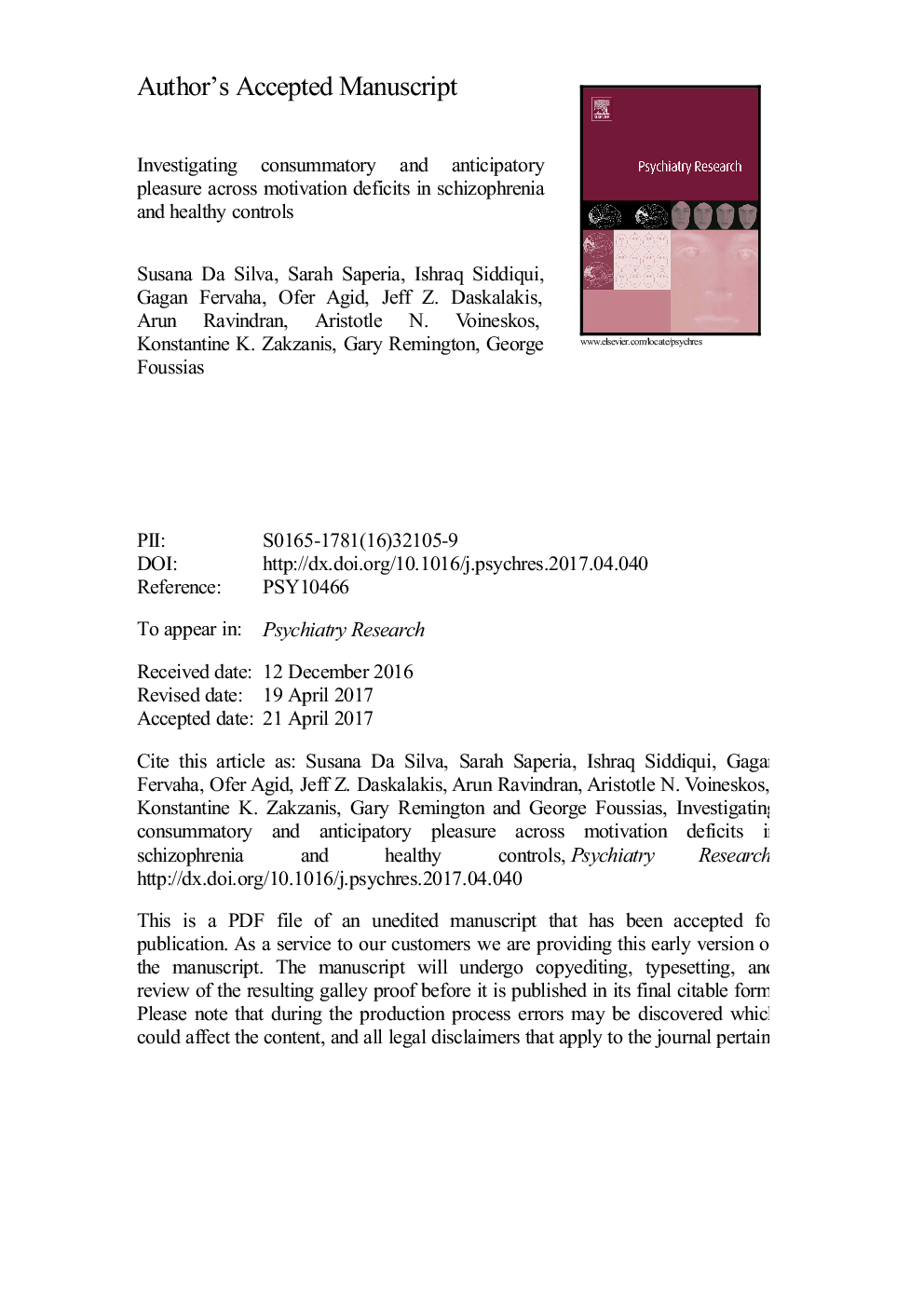ترجمه فارسی عنوان مقاله
تحقیق در مورد لذت برداری و پیش بینی کننده در نقص های انگیزشی در اسکیزوفرنی و کنترل های سالم
عنوان انگلیسی
Investigating consummatory and anticipatory pleasure across motivation deficits in schizophrenia and healthy controls
| کد مقاله | سال انتشار | تعداد صفحات مقاله انگلیسی |
|---|---|---|
| 121485 | 2017 | 23 صفحه PDF |
منبع

Publisher : Elsevier - Science Direct (الزویر - ساینس دایرکت)
Journal : Psychiatry Research, Volume 254, August 2017, Pages 112-117

